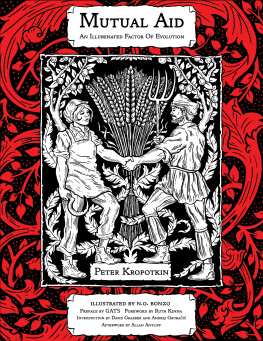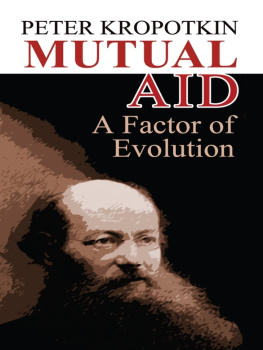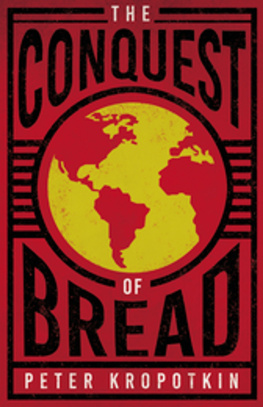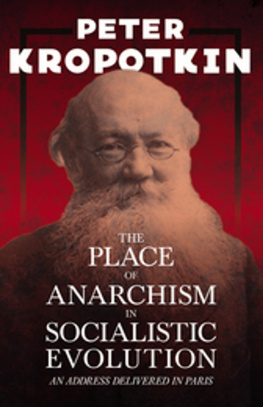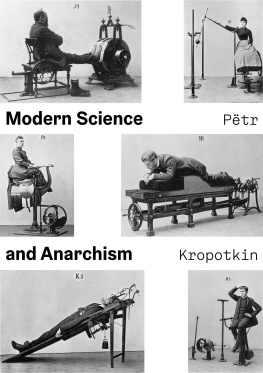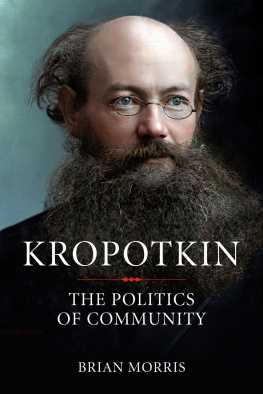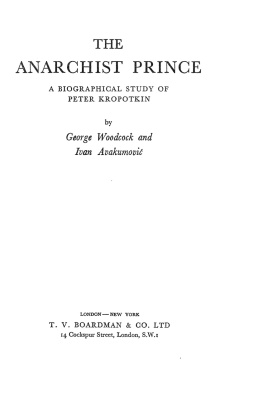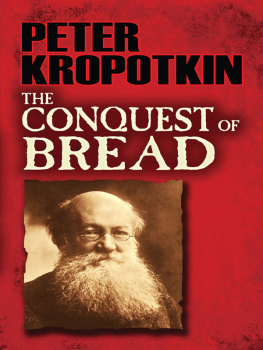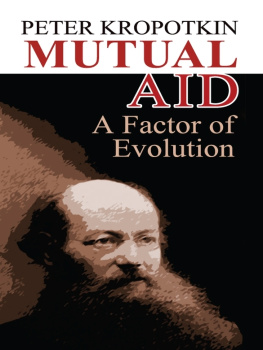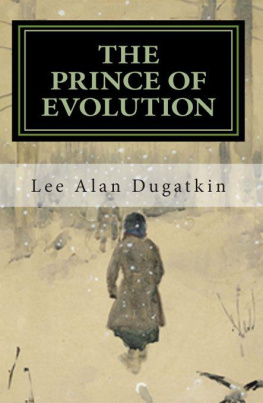Mutual Aid
In ancient Greek philosophy, kairos signifies the right time or the moment of transition. We believe that
we live in such a transitional period. The most important task of social science in time of transformation
is to transform itself into a force of liberation. Kairos, an editorial imprint of the Anthropology and Social
Change department housed in the California Institute of Integral Studies, publishes groundbreaking
works in critical social sciences, including anthropology, sociology, geography, theory of education, politi-
cal ecology, political theory, and history.
Series editor: Andrej Grubai
Recent and featured Kairos books:
Asylum for Sale: Profit and Protest in the Migration
Industry edited by Siobhn McGuirk and
Adrienne Pine
The Art of Freedom: A Brief History of the Kurdish
Liberation Struggle by Havin Guneser
Building Free Life: Dialogues with calan edited by
International Initiative
The Sociology of Freedom: Manifesto of the
Democratic Civilization, Volume III by Abdullah
calan
In, Against, and Beyond Capitalism: The San
Francisco Lectures by John Holloway
Anthropocene or Capitalocene? Nature, History, and
the Crisis of Capitalism edited by Jason W. Moore
We Are the Crisis of Capital: A John Holloway
Reader by John Holloway
Re-enchanting the World: Feminism and the Politics
of the Commons by Silvia Federici
Autonomy Is in Our Hearts: Zapatista Autonomous
Government through the Lens of the Tsotsil
Language by Dylan Eldredge Fitzwater
The Battle for the Mountain of the Kurds: Self-
Determination and Ethnic Cleansing in the Afrin
Region of Rojava by Thomas Schmidinger
Crossroads: I Live Where I Like: A Graphic History
by Koni Benson, illustrated by Andr Trantraal,
Nathan Trantraal, and Ashley E. Marais
Beyond the Periphery of the Skin: Rethinking,
Remaking, and Reclaiming the Body in
Contemporary Capitalism by Silvia Federici
Beyond Crisis: After the Collapse of Institutional
Hope in Greece, What? edited by John Holloway,
Katerina Nasioka, and Panagiotis Doulos
Occult Features of Anarchism: With Attention to
the Conspiracy of Kings and the Conspiracy of the
Peoples by Erica Lagalisse
Birth Work as Care Work: Stories from Activist
Birth Communities by Alana Apfel
Practical Utopia: Strategies for a Desirable Society
by Michael Albert
Archive That, Comrade! Left Legacies and the
Counter Culture of Remembrance by Phil Cohen
Facebooking the Anthropocene in Raja Ampat by
Bob Ostertag
For more information visit www.pmpress.org/blog/kairos/
Mutual Aid
An Illuminated Factor
of Evolution
Peter Kropotkin
Illustrated by N.O. Bonzo
Mutual Aid: An Illuminated Factor of Evolution
Peter Kropotkin
Illustrated by N.O. Bonzo
This edition 2021 PM Press
ISBN: 9781629638744 (paperback)
ISBN: 9781629638751 (hardcover)
ISBN: 9781629638966 (ebook)
Library of Congress Control Number: 2020947278
Cover and interior design by N.O. Bonzo
10 9 8 7 6 5 4 3 2 1
PM Press
PO Box 23912
Oakland, CA 94623
www.pmpress.org
First published in Canada in 2021 by Between the Lines
401 Richmond Street West, Studio 281, Toronto, Ontario, M5V 3A8, Canada
18007187201
www.btlbooks.com
All rights reserved. No part of this publication may be photocopied, reproduced,
stored in a retrieval system, or transmitted in any form or by any means,
electronic, mechanical, recording, or otherwise, without the written permission
of the publisher or (for photocopying in Canada only) Access Copyright
www.accesscopyright.ca.
Canadian Cataloguing in Publication information available from Library and
Archives Canada
ISBN: 9781771135801
Printed in the USA.
Contents
by Ruth Kinna
by David Graeber and Andrej Grubai
by GATS
Foreword
by Ruth Kinna
In March 1889 Peter Kropotkin agreed to give six lectures to William
Morriss Socialist Society in Hammersmith, London. Labelling the series
Social Evolution, he planned to explore the grounds of socialism. As
it turned out, he never delivered the talks, but the title and timing, just a
year before he published his first essay on mutual aid, hint at the content.
He left a bigger clue when he told Morriss daughter May that he had been
working on the series during his recent tour of Scotland. According to local
press reports, one of the issues on Kropotkins mind was the feasibility of
socialism. Perhaps rashly, given that one critic had dismissed his social-
ism as a futile, dangerous scheme to reach Arcady through anarchy, he
told an Aberdeen meeting that too many workers attracted to socialism
still believed it impractical. The account of social evolution he outlined in
Mutual Aid: A Factor of Evolution was a response to this scepticism and it
has since become his most celebrated refutation.
The concept of mutual aid is outlined in eight essays. The first,
Mutual Aid among Animals, was published in 1890 in the journal The
Nineteenth Century. By 1896, Kropotkin had completed the others. The
resulting book was published in 1902, but Kropotkin continued to develop
the concept, notably in Anarchism: Its Philosophy and Ideal (1897); The State:
Its Historic Role (1898); and Modern Science and Anarchism (1912). Some
thirty years after starting his investigations, he issued his final, incomplete
statement, posthumously published as Ethics, Origin and Development
(1924). Each new iteration brought out a different facet of the concept: the
repressive character of the modern European state, the impulses driving
exemplary behaviours, the basis of moral action, the principle of justice
that morality described, and the structural mechanisms for its accultura-
tion. The common thread tying these strands together was Kropotkins
view that socialism tapped an innate tendency to cooperate common to all
living things. Socialism was neither the utopists candy mountain nor the
salvationists pie in the sky. It was a potential alternative. The thrust of
Kropotkins argument was that existing disciplinary, exploitative orders
had institutionalized competition and individual struggle, wrongly pre-
senting this behaviour as natural. Against this, the theory of mutual aid
demonstrated that there was nothing inevitable, preordained, much less
moral or good about these arrangements. Nature was plastic and there-
fore malleable to forces capable of building convivial, libertarian social
systems.
Mutual Aid lends itself to multiple interpretations. This is partly
because Kropotkin theorised it by intervening in a longstanding debate
about the social and ethical implications of Charles Darwins Origin of
Species . In doing so, he enthusiastically adopted Victorian interdisciplinary


